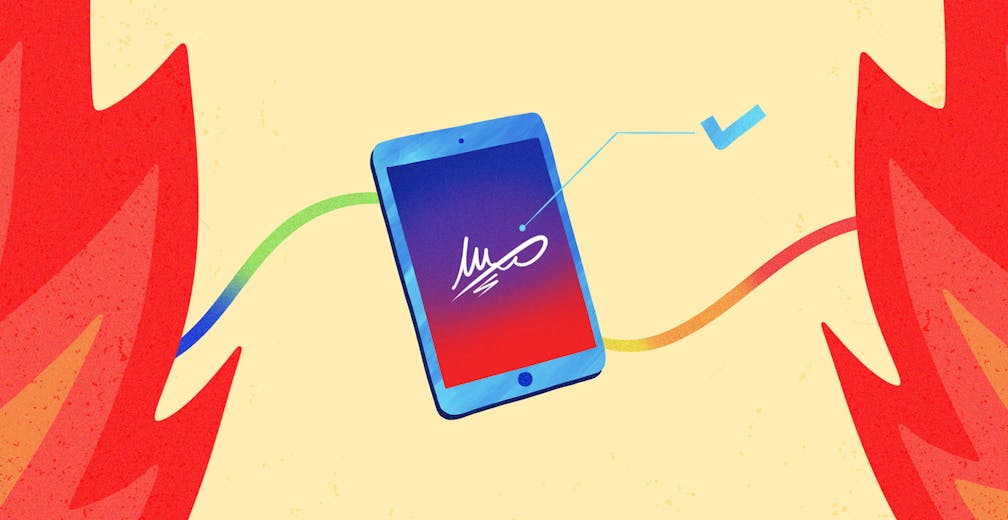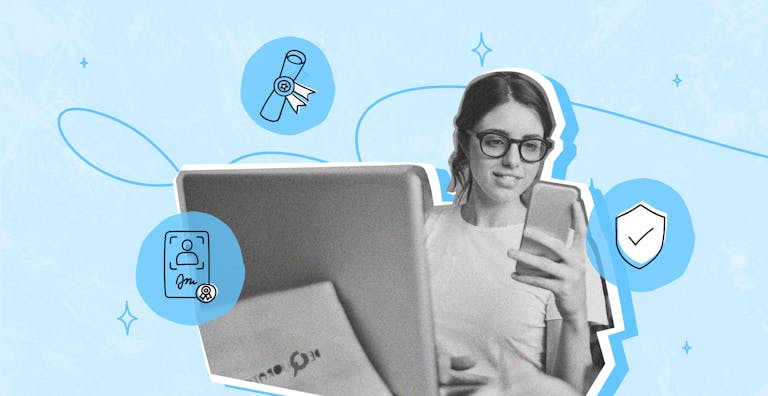Nicolas Hesse, Head of Operations at Viessmann, implemented a whole new process, digitizing B2B sales for the company’s field sales force. One year after the deployment of the new sales interface, we caught up with him to find out, with hindsight, the benefits but also the difficulties in the face of this digital transformation.
Why did you decide to digitize Viessmann’s sales process?
Today I manage a team of nearly 150 mobile salespeople. Their work consists of meeting heating professionals working in their geographical area and entering partnerships, selling them Viessmann equipment (boilers, heat pumps, solar panels). The heating professionals are then responsible for selling the equipment to end consumers. This is known as a B2B2C sales system.
The sales team had to get the heating engineers to sign several copies of the initial sales contracts as well as yearly contract amendments. These documents had to be completed manually before being signed. To avoid wasting time during appointments, most sales representatives pre-filled the documents before the meeting.
During the appointment, the customer was required to sign and stamp the contract and initial each page of the Terms and Conditions. The contract, drawn up on carbon copy paper, was then divided into 3 copies: one for the customer, one for the sales representative and one to be sent by post to Viessmann's head office for the marketing and sales administration departments.
What were the problems you faced that pushed you towards this transition?
Firstly, the carbon paper contracts made Viessmann look outdated to clients. Also, the signing process (contract, terms and conditions, etc.) was long and particularly laborious.
From our sales representatives’ point of view, pre-filling the documents ahead of appointments and then sending them by post to headquarters was particularly time-consuming. They spent a great deal of time handling these administrative tasks which could have been devoted to their core business, namely prospecting and advising clients.
Finally, the documents were rarely used by the teams in our headquarters. Contracts arrived late since the field sales team preferred, for obvious reasons, to send them in bulk rather than visiting the post office after each meeting. The documents were also difficult to use. Contracts filled in manually and on carbon paper were often illegible or incomplete, preventing the sales administration from providing quality support and marketing departments from qualitatively handling the data.
This had consequences for customers, for example, our services weren’t reactive and there were errors in the processing of data and requests. Viessmann faced a lack of efficiency and a lack of understanding between the different services in the headquarters and field. That’s not to mention the storage problems for these documents.
How did Viessmann implement its digital transformation?
The objective was clear: to transform and optimize our sales process so that it would be simple to use and practical for all parties: the client, the salesperson and the teams in our headquarters.
So, naturally, we decided to say goodbye to the carbon copy paper. The field sales representatives have all been equipped with tablets. We created a sales interface that they could present to customers directly from this tablet which allowed them to follow the sales process and to sign the contract step by step.
All the steps have been automated. Following the sales meeting, an automatic update of the customer’s files is accessible to the various departments within the company. Contracts and terms and conditions have also been integrated into these tools, enabling customers to sign electronically and receive their contracts in digital form.
Digitization is not an abrupt and sudden process, it requires continuous improvement.
Throughout the first year, we gathered feedback from different users to make modifications to the platform according to their needs and to optimise this new sales process as much as possible.
How does the electronic signature come into this new system?
As I was saying, we wanted to eradicate paper from our sales process. The challenge was therefore to find a new way to generate contracts for our sales partnerships without the archaic pencil and paper and, above all, to find a system with real legal value.
Our first idea was to set up a system where the signature was completed on the screen of the tablet, based on the model commonly seen when a parcel is delivered. We quickly discovered that this type of signature had no real legal value, which posed a real problem—especially for the Conditions of Sale and the acceptance of our pricing policy by resellers.
Therefore, we opted to integrate Yousign's electronic signature API. Our criteria were quite simple in the end—we wanted above all a solution provided by a certified authority to ensure the legal validity of the signatures on our contracts. Secondly, we wanted to use a European solution. Finally, we needed an easy-to-use system that could easily be integrated into our sales tool. Yousign met all these criteria.
The integration was carried out by an external service provider suggested by Yousign's technical team. As with the entire sales process, we carried out optimizations during the first year of use.
For example, we operated with a double signature on contracts, that of the client and that of the salesperson. We realized that the signature of the salesperson was not useful and therefore eliminated this step.
What were the results of this digital transformation?
The results have been beneficial to all parties involved.
The tablets used by our sales force have modernised Viessmann's brand. Customers also appreciate the simplicity of our contract signing process, as well as receiving their contract via email directly at the end of the meeting. Lastly, Viessmann's responsiveness to client requests has drastically improved, strengthening customer relations.
For the sales staff, the digitization has enabled them to save a considerable amount of time, freeing them from having to perform most of these administrative before and after meetings with clients. No more files to be pre-filled or having to go to the post office every week to send out contracts! In terms of customer relations, the sales team was reassured when the sales administration took over their accounts and of the commitment made with their partner companies. A real relationship of trust has been created between the field team and headquarters.
From the headquarters' point of view, it has become much simpler to have a concrete overview of commercial performance both in terms of the number of contracts and in terms of value. Actions driven by the sales force can now be implemented almost instantly by the sales administration. In the same way, the marketing department has been able to collect reliable and complete data and therefore optimize its actions to support the sales force.







